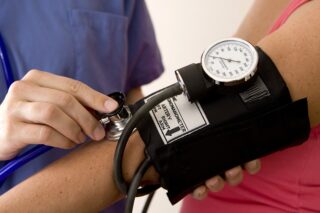
Many people suffering from AFib have heard that the condition is not life-threatening on its own, and they wonder why it’s important to treat it. The answer is because AFib compromises the overall health of your heart over time and greatly increases the risk of suffering a dangerous stroke; making it vital for anyone who notices symptoms related to AFib to seek treatment as soon as possible.
Why AFib Increases the Risk of Stroke
When the heart’s not beating in its normal rhythm, it can lead to an erratic blood flow throughout the chambers. Sometimes, this abnormal blood flow can result in a blood clot forming, which can travel throughout the blood vessels and potentially become stuck somewhere that is too small to allow it to pass. If a blood clot gets stuck and restricts the flow of blood to the brain, it eventually leads to a stroke.
Tips for Reducing the Risk of Stroke for AFib Patients
In order to reduce the risk of a life-threatening stroke, your doctor may prescribe medication known as an anticoagulant or a blood thinner. These medicines focus on delaying the formation of clots in the bloodstream in order to decrease the possibility of a dangerous clot blocking the path to the brain.
Although medications work for some patients, they are not effective in every circumstance. Anticoagulants also increase the chances of internal bleeding, so many doctors will not prescribe them in instances of abnormal blood tests. In such cases, there are several non-pharmacological treatments that may be recommended.
Treatment Options that Can Help People Living with AFib
Some of the AFib treatments your doctor may recommend include:
- Catheter ablation – Catheter ablation involves mapping the electronic signals within your cardiac chambers in an effort to locate the source of the arrhythmia. Radiofrequency pulses are then sent to the heart via the catheter to restore the heart’s natural rhythm.
- WATCHMAN procedure – The innovative WATCHMAN device can be inserted at the opening of the left atrial appendage in order to close an opening that may be causing blood clots.
- Pacemaker – For some patients, pacemakers can be implanted in the heart to electronically control the heart’s rhythm.
To learn more about these treatment options as well as others that can help patients living with AFib, contact Dr. Dilip Mathew today. Through his practice, Heart Rhythm Consultants, P.A., Dr. Mathew is dedicated to improving the lives of people throughout the Sarasota area who are are living with cardiac arrhythmias.



